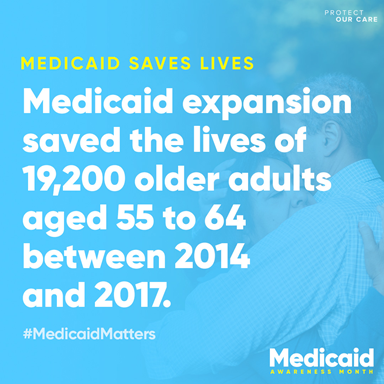|
|
New Laws Make It Easier to Visit Loved Ones in Health Care Facilities |
|
At the onset of the COVID-19 pandemic, hospitals and other long-term care facilities across the country limited or prohibited visitation to protect patients and staffers from infection.
However, several states, including New York and Texas, have recently passed legislation that allows long-term care residents to designate essential caregivers who may visit regardless of an ongoing public health emergency. Supporters of the new legislation argue that the visitation restrictions had actually resulted in higher rates of patient mortality. Indeed, a recent study from JAMA Neurology found that, besides COVID-19 infection, the negative effects of social isolation and loneliness may have contributed to elevated mortality rates.
Residents of long-term care facilities are still one of the groups most at-risk for severe COVID-19 infection and death, so the new visitation laws also include provisions that protect patients and staff, such as mask requirements, health screenings and a revocation of the right to visit for those who break the rules.
“Visits from loved ones help a patient heal and help prevent other health problems,” said Robert Roach, Jr., President of the Alliance. “But as always, it’s best to consult your doctor when deciding whether it's a safe time to visit a hospital or long term care facility.” |
|
2022 National and Regional Meetings - Save the Dates |
|
The Alliance for Retired Americans will hold its quadrennial National Membership Meeting and Regional Meetings this July. These meetings will be conducted virtually. During the meetings, Alliance members will elect a president, secretary-treasurer, executive vice-president, and six At-large members of the Alliance executive board.
The National Membership Meeting will be held on July 28, 2022 and July 29, 2022. Regional Meetings, during which 16 regional board members will be elected, will be held on:
Registration details and full meeting agendas will be available in May at www.retiredamericans.org. |
|
Arizona Alliance Testifies at Sen. Kelly Hearing on Lowering Prescription Drug Prices |
|
Arizona Senator Mark Kelly chaired a U.S. Senate Special Committee on Aging hearing in Phoenix on Tuesday entitled, “No Time to Wait: Proposals to Lower Prescription Drug Costs.” Arizona experts, advocates, and patients impacted by rising drug prices, including Dora Vasquez, Executive Director of the Arizona Alliance, offered testimony regarding their experiences.
The hearing examined potential solutions to the ongoing challenge, such as the Kelly-backed bill to cap the monthly price of insulin at $35 that recently passed the House of Representatives, as well as Kelly’s plan to lower prescription drug costs by allowing Medicare to negotiate prices of certain high-cost drugs and ensure that drug companies can’t raise the prices at a pace faster than inflation.
Video of the hearing is available on the Aging Committee’s website.
"Thirty-four percent of seniors here in Arizona are concerned that their household won't be able to afford their needed prescription drugs in the next year," said Kelly. "And those concerns, they're not unfounded. Last year, more than one in 10 Americans aged 65 and older skipped a pill because of the cost.”
“Americans continue to pay the highest prices in the world for prescription drugs, and prices on hundreds of drugs have already increased by 5% in 2022,” added Richard Fiesta, Executive Director of the national Alliance. “‘No Time to Wait’ was certainly an appropriate title for this hearing.” |
|
Kaiser Health News — It’s Your Choice: You Can Change Your Views of Aging and Improve Your Life By Judith Graham |
|
|
People’s beliefs about aging have a profound impact on their health, influencing everything from their memory and sensory perceptions to how well they walk, how fully they recover from disabling illness, and how long they live. |
|
When aging is seen as a negative experience (characterized by terms such as decrepit, incompetent, dependent, and senile), individuals tend to experience more stress in later life and engage less often in healthy behaviors such as exercise. When views are positive (signaled by words such as wise, alert, accomplished, and creative), people are more likely to be active and resilient and to have a stronger will to live.
These internalized beliefs about aging are mostly unconscious, formed from early childhood on as we absorb messages about growing old from TV, movies, books, advertisements, and other forms of popular culture. They vary by individual, and they’re distinct from prejudice and discrimination against older adults in the social sphere.
More than 400 scientific studies have demonstrated the impact of individuals’ beliefs about aging. Now, the question is whether people can alter these largely unrecognized assumptions about growing older and assume more control over them.
|
|
The Alliance Celebrates Medicaid Awareness Month |
|
The Medicaid program is a crucial lifeline for 79 million Americans with limited income and resources, and many older Americans rely on the program for coverage of nursing home and personal care services. That’s why the Alliance is joining in celebrating April as Medicaid Awareness Month. |
|
|
The monthlong focus is on what the future is likely to bring for American health care. Each week, the Alliance is joining with Affordable Care Act (ACA) advocacy group Protect Our Care to highlight key Medicaid issues. This week’s theme is Close the Coverage Gap. |
|
Currently, millions of Americans are still without health coverage in the 12 states where Republican legislators have refused to expand Medicaid.
“Medicaid is an important pillar of the American health care system, and it’s time to expand coverage in the states that have so far not accepted federal funding to do so,” said Joseph Peters, Jr., Secretary-Treasurer of the Alliance.
In addition, President Biden has taken steps to close the Medicaid coverage gap this month by proposing a rule to eliminate the ACA’s “family glitch.”
The glitch stems from the fact that under the ACA, an individual enrolling in a Marketplace plan is not eligible for a premium tax credit if they are eligible for job-based coverage that is considered “affordable” and provides minimum value (covers at least 60% of health expenses on average).
Currently, the affordability threshold of household income is based on the cost of an employee’s self-only coverage, not the premium required to cover any dependents. An employee whose contribution for self-only coverage is less than 9.83% of household income is deemed to have an “affordable” offer, which means that the employee and his or her family members are ineligible for financial assistance on the Marketplace, even if the cost of adding dependents to the employer-sponsored plan would far exceed 9.83% of the family’s income.
The family glitch problem is linked to the affordable employer coverage definition, which has left about 5 million people without health insurance. |
|
Thanks for reading. Every day, we're fighting to lower prescription drug prices and protect retirees' earned benefits and health care. But we can't do it without your help. Please support our work by donating below. |
|
|
|
|
Alliance for Retired Americans | 815 16th Street, NW | Washington, DC 20006 | www.retiredamericans.org



